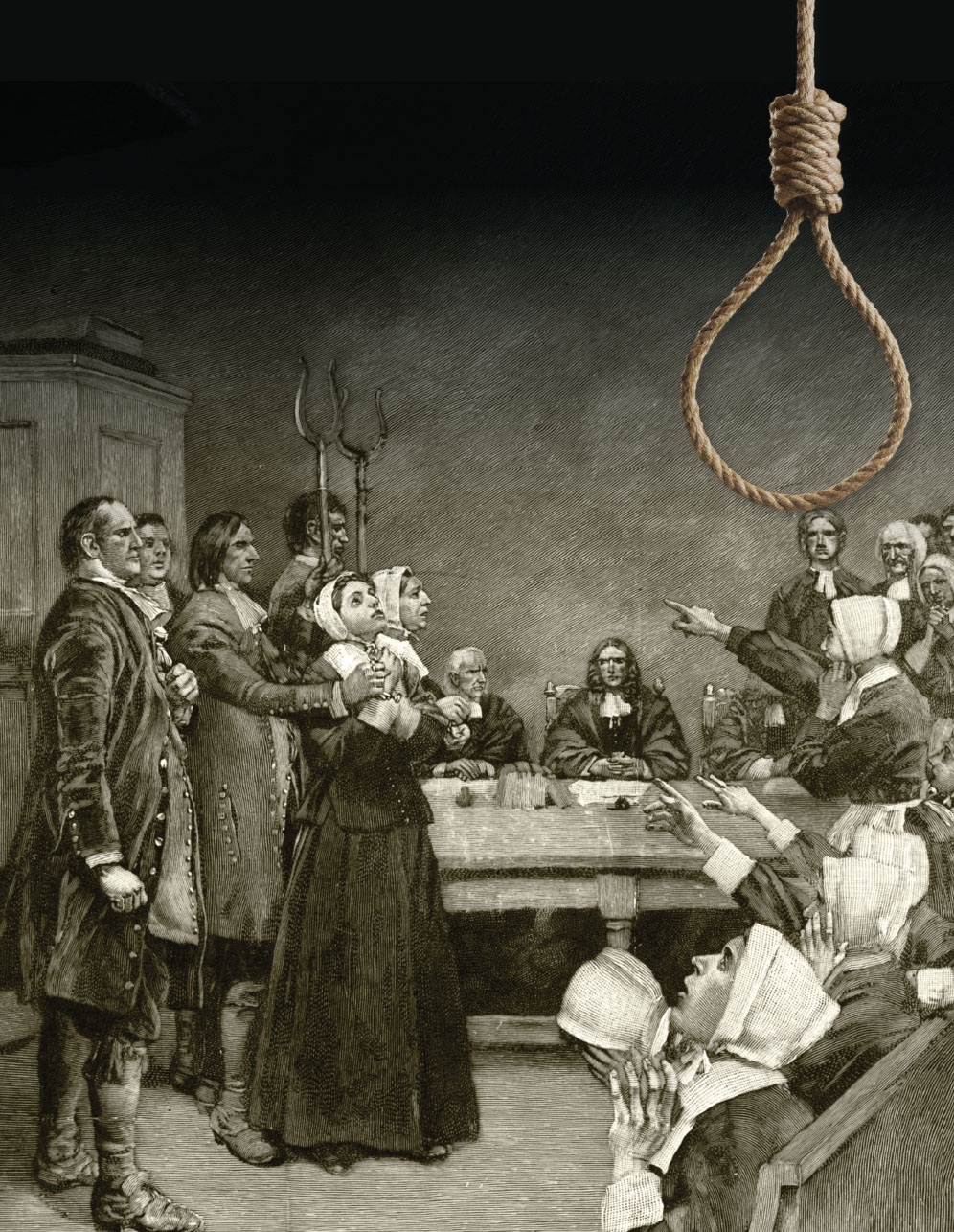
PARANOIA RULES Two girls are tried for witchcraft – some 200 were accused of practicing the dark arts in the American village of Salem between 1692 and 1693
ART ARCHIVE X1, TOPFOTO X1
The heat is stiffing on this July day in 1692, as five dishevelled and bound women are paraded on a wooden cart through the streets of Salem village in the colony of Massachusetts Bay. As the cart bumps its way towards a hill on the outskirts, the five contemplate their mortality. Within minutes they’re led, hoods drawn over their heads, towards a rudimentary set of gallows, and their imminent executions.
These five women – Sarah Good, Elizabeth Howe, Susannah Martin, Rebecca Nurse and Sarah Wildes – were the among the first to be tried and found guilty of witchcraft during a bleak nine-month period of New England history simply recalled as the Salem Witch Trials. As the innocent women approached the gallows, in the last moments of their lives, they continued to protest their innocence. Rev Nicholas Noyes, one of the local clergymen who had vigorously pursued the prosecutions, was the particular focus of Sarah Good’s anger: “You are a liar. I am no more a witch than you are a wizard. And if you take away my life, God will give you blood to drink.”